Health Crises Academy
At the Centre for Health Crises, we conduct our educational activities within a programme area we call the Health Crisis Academy. We develop and run training programmes, workshops and courses in a number of areas related to health crises. In addition, we can quickly put together specially adapted educations for urgent needs in health crises. We have also conducted a mapping of training programmes in the field of health crises.
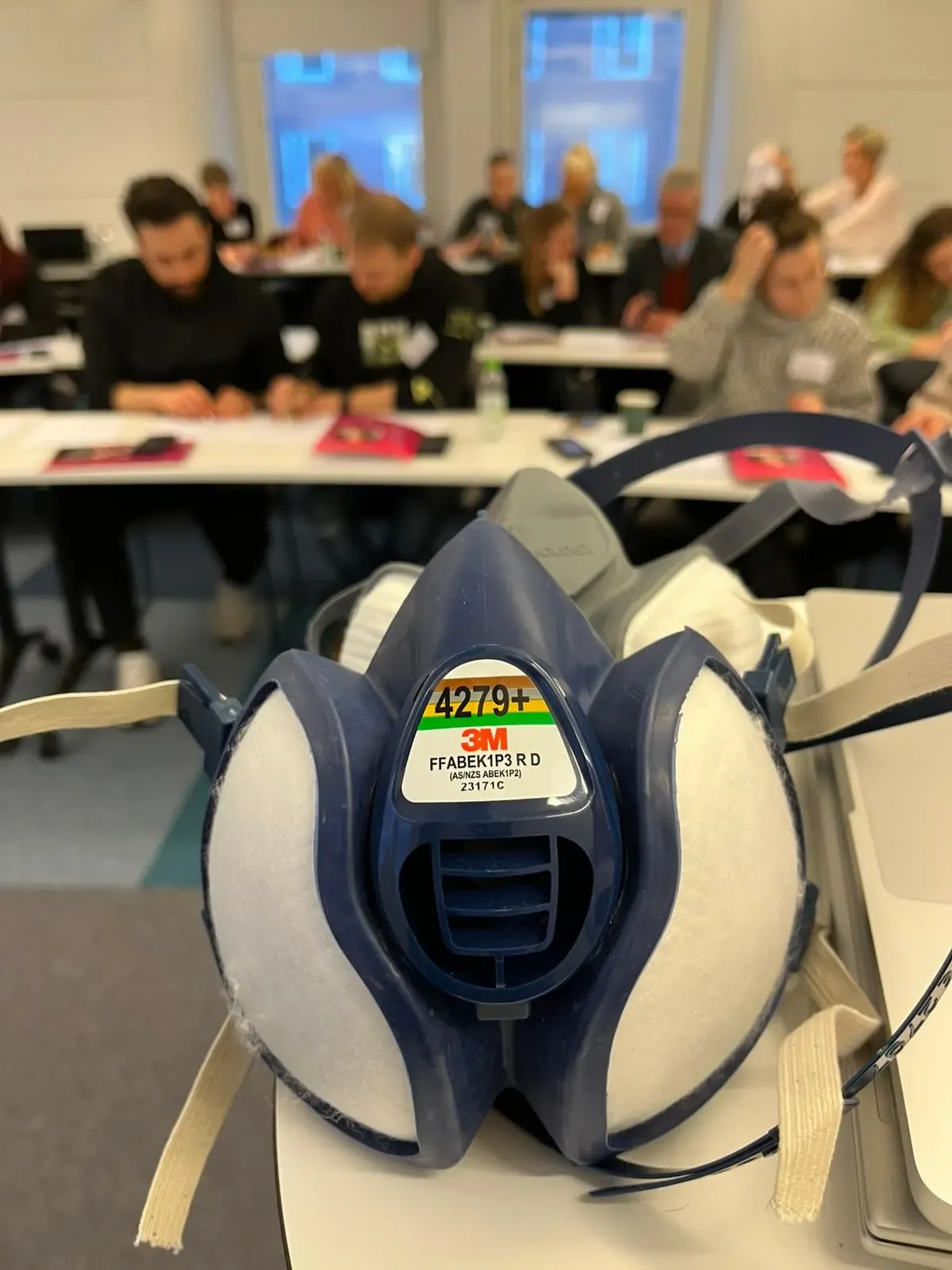
Educational initatives at the Health Crises Academy
AHLS
AHLS (Advanced Hazmat Life Support) is a course that focuses on emergency care in the event of exposure to hazardous chemicals, such as chemical accidents and deliberate release of toxic substances. The course is aimed at physicians, nurses, paramedics and people with specific responsibilities in the field of CBRN (chemical, biological, radiological and nuclear materials).
AHLS is an internationally recognised course developed by the American Academy of Clinical Toxicology (AACT) and is currently offered in over 70 countries. The course provides participants with in-depth knowledge of how to identify, assess and treat patients. Upon successful completion of the course, participants receive an AHLS certification confirming their competence in this specialised field.
The Centre for Health Crises, together with the Centre for Disaster Medicine, Region Östergötland, has adapted the course to Swedish conditions. The first course in Swedish in Sweden was held on 4-5 February 2025. Our expert coordinator in chemical and toxicological events, Mattias Öberg, is the course leader. For more information, please email us at healthcrises@ki.se
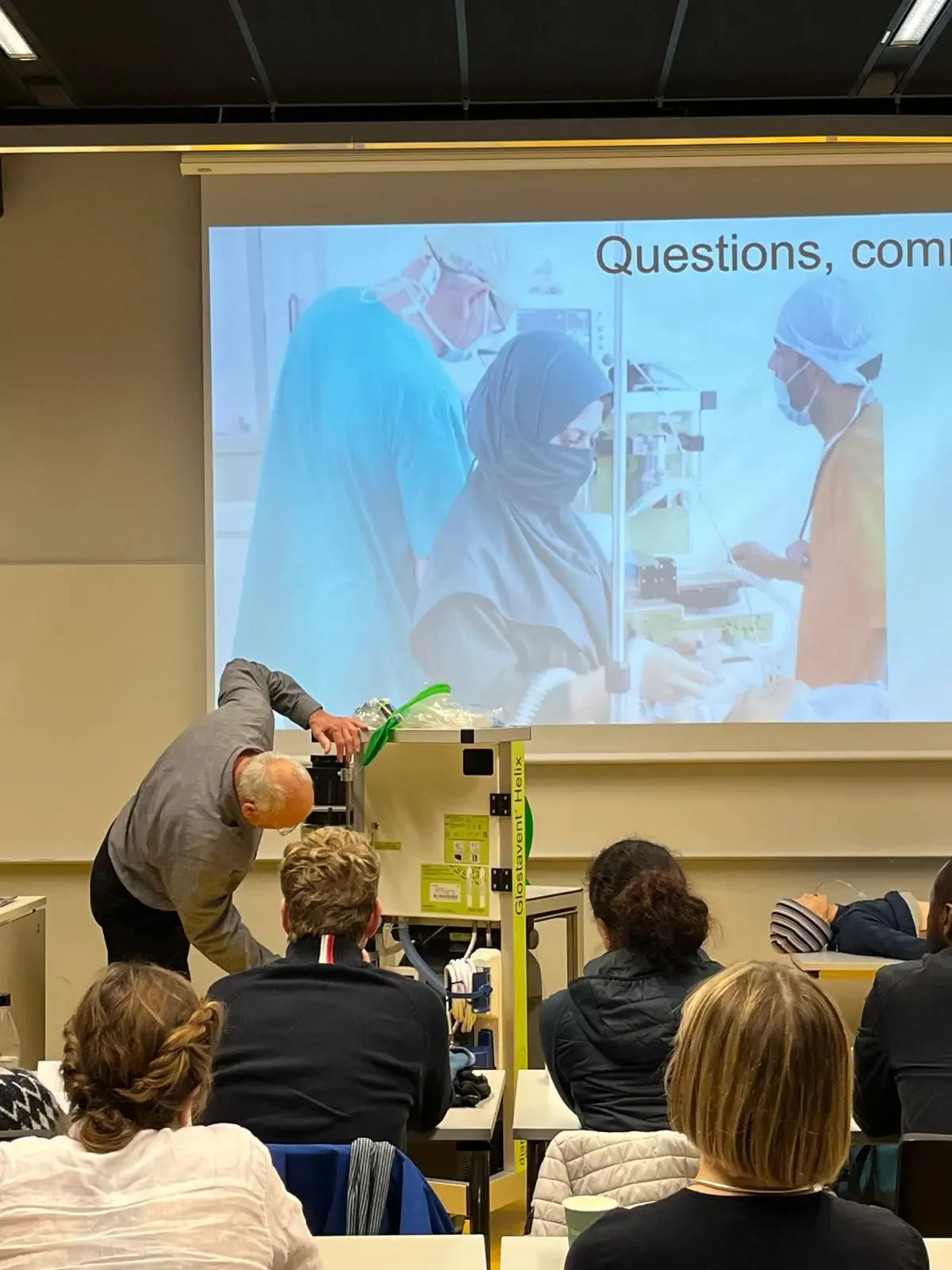
Anaesthesia and critical care with limited resources
In situations where anaesthesia care needs to be provided with limited resources, such as in crises and disasters, or in low-resource contexts, the demands that are placed on care is different. In the course Anaesthesia and critical care with limited resources, participants will learn how to adapt and deliver anaesthesia care with limited resources. The course is done in collaboration with Médecins Sans Frontières Sweden and is aimed at physicians and nurses specialised in anaesthesia and/or intensive care who will be working in crises, disasters and/or low-resource areas. The next course will be held in May 2026.
Our expert coordinator in intensive care with limited resources, Märit Halmin, is the course coordinator. For more information, please email us at healthcrises@ki.se
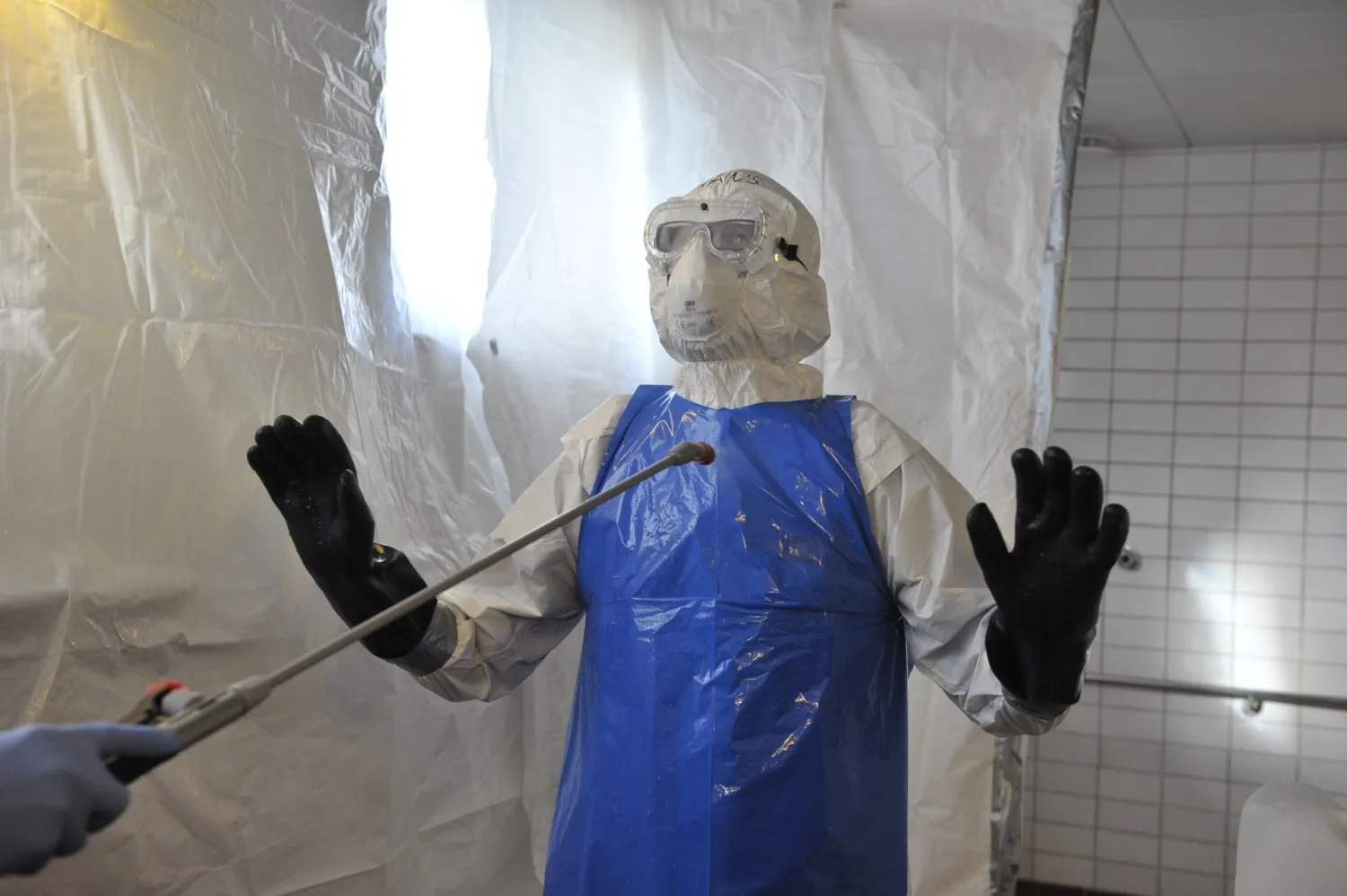
Customised courses to cover specific and sudden needs in health crises
In a health crisis, specific educational and training needs may suddenly arise to learn how to deal with the situation that has arisen. This may include, for example, the use of new tools, new ways of working or support in transferring skills.
At the Centre for Health Crises, we have the expertise and ready-made methods to quickly create tailor-made training courses and other educational activities to help organisations quickly address new training and exercise needs in a health crisis. This includes both physical and digital training, in different formats.
We have previous experience in developing this type of training for urgent needs in health crises. During the COVID-19 pandemic, our staff were involved in the rapid development of short e-learning courses for healthcare workers who were in contact with people with suspected or confirmed COVID-19. These courses have since been completed by over 200,000 people. Our staff also helped develop a course on mass immunisation during the COVID-19 pandemic, which has now been adapted for use in other health emergencies. In the past, our staff have also been involved in the development of training courses on Ebola treatment approaches.
For more information on our work on customised courses, please email healthcrises@ki.se
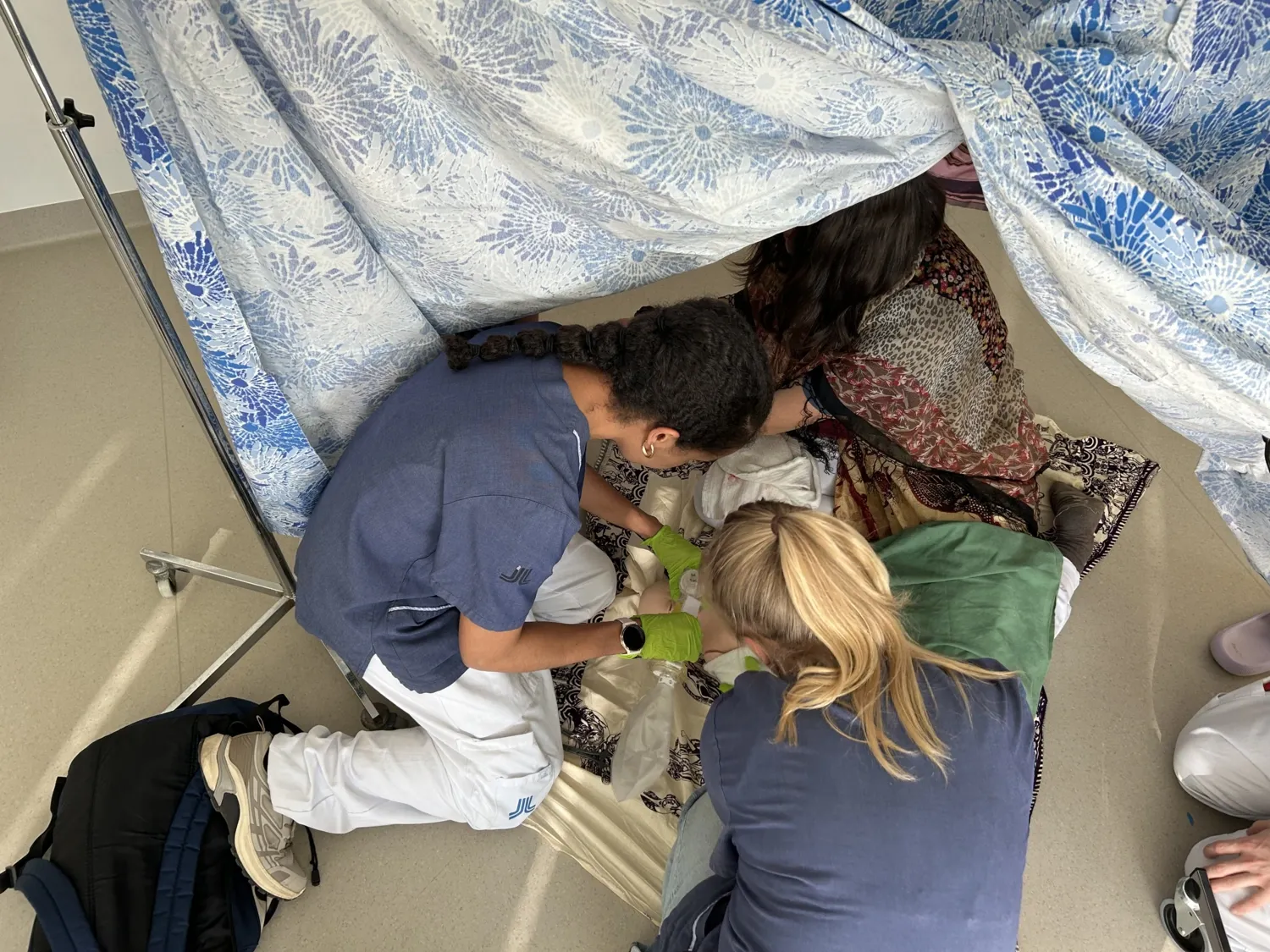
Health Assistance in Humanitarian Crises
Health Assistance in Humanitarian Crises, is a course aimed at health care professionals who are preparing to work on missions in low-resource and/or conflict or disaster-stricken areas. The course provides participants with concrete tools for planning and implementing humanitarian health interventions. The next course is planned for the autumn semester 2026. If you are interested, please contact Médecins Sans Frontières (MSF) Sweden.
Health Assistance in Humanitarian Crises is taught by our colleagues in the research group Global Disaster Medicine - Health Needs and Response and organised in collaboration with Médecins Sans Frontières (MSF) Sweden. The course has been developed and is conducted with support from us at the Centre for Health Crises.
Rapid Response Briefs
Rapid Response Briefs refer to a format for producing rapid evidence briefs for use by decision-makers in a health crisis. The aim is to create a way to work systematically and evidence-based, despite the time and resource constraints that a health crisis creates. The format and method for learning how to use them is being developed and was tested at a workshop in May 2024.
The workshop was developed in collaboration with KIB - Karolinska Institutet's library and SBU - the Swedish Agency for Health Technology Assessment and Assessment of Social Services. SBU has since been tasked with developing this further and look at ways of establishing a process for rapid response briefs in a crisis situation. This is done in collaboration with us at the Centre for Health Crises. You can read more this collaboration on our page on science to policy.
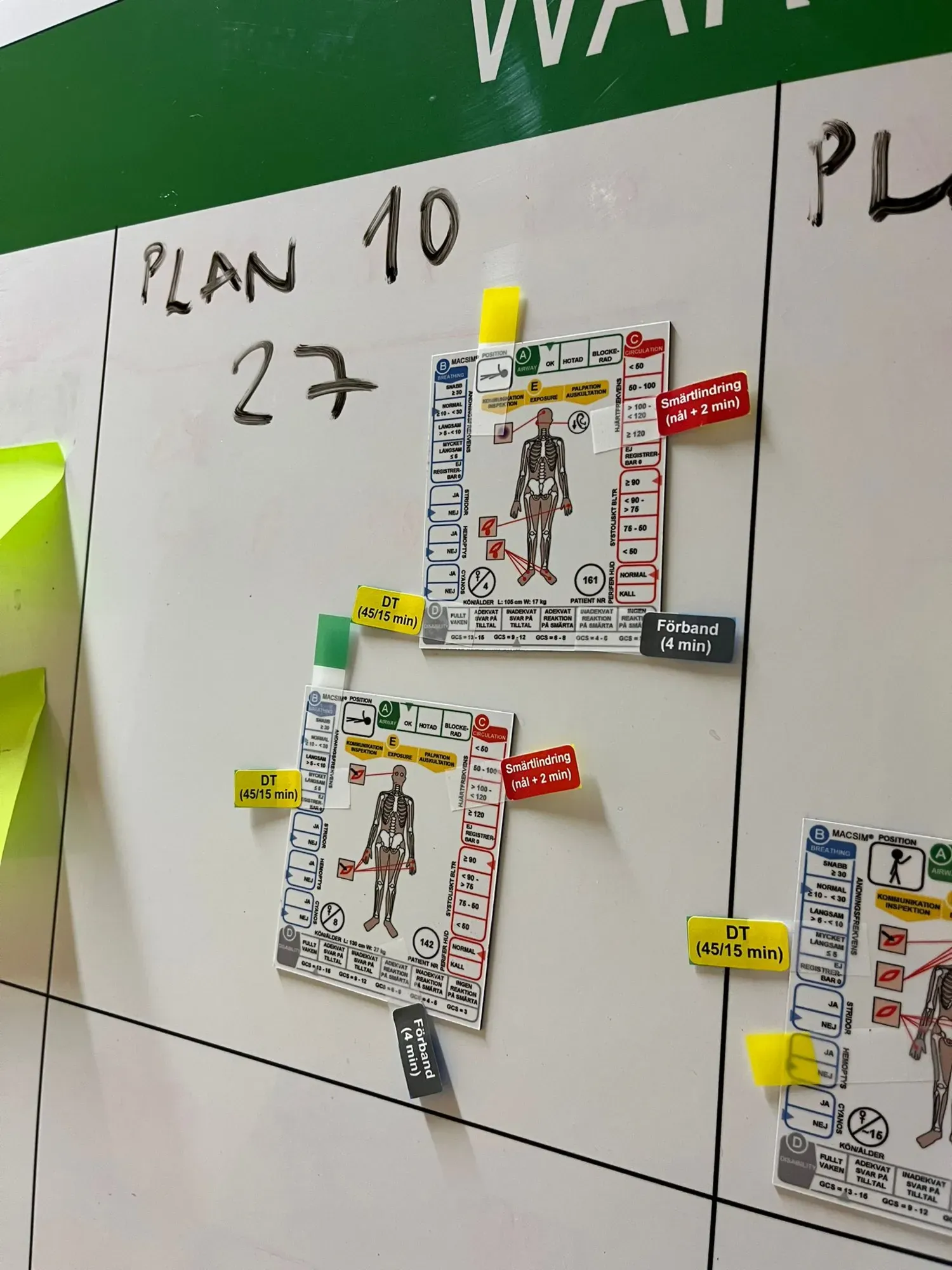
Trauma Katastrof Sweden (TK Sweden)
TK Sweden is a train-the-trainers course in traumatology and disaster medical preparedness. It is based on a course concept that has been running in Region Stockholm since 2022, in the form of a course called Trauma Katastrof Stockholm, which trains staff working in emergency hospitals in the region.
The teaching is team-based with a focus on blast injuries and the mass casualty event exercise gives emergency hospitals the opportunity to test their disaster medical plans and action cards.
By creating the TK Sweden instructor course, we have made the course concept available nationally and adaptable to the needs of individual county councils. During the course, participants will learn how the original course is structured and how the course concept can be used and adapted. After completing the training, participants attend the Region Stockholm course as observers.
TK Sweden helps to ensure that training in traumatology and disaster medical preparedness is similar across the country, can be initiated in all counties, thanks to the existence of an instructor course and a national network for development and support.
Our expert coordinator in emergency surgery, Lisa Strömmer, is the course coordinator. For more information, email us at healthcrises@ki.se
Developing training and education
We are continuously working on training development, both in health crises in general and in individual areas of expertise. When developing training programmes, we ensure that they are practically applicable and developed in close cooperation with practitioners to ensure relevance and usability. We also value close contact with our network partners and collaborators (LINK) in developing and producing new training programmes.
If you have any questions about our work in developing training and education or would like to explore the possibility of developing a health crisis training programme with us, please email healthcrises@ki.se
Mapping of educational activities in the field of health crises
In 2024, we conducted a mapping of educational activities in the field of health crises Sweden. The mapping included universities, where both regular training activities and professional and executive education were included, as well as educational activities run by government agencies, county council and other relevant actors. For each group of actors, a review of the activities offered was carried out, with a focus on identifying and categorising the programmes and courses that are relevant to skills provision in the health crisis area.
The mapping shows that there are already training programmes in a wide range of topics within the field, such as disaster medicine, CBRNE (chemical, biological, radiological, nuclear and explosive elements) and crisis preparedness, but that the supply is relatively limited, in relation to both the total number of educations and the importance of the subject area. In addition, there is a lack of a coordinated platform and available information on education initiatives in the field.
The mapping concluded in a report describing our approach and conclusions. We also look ahead and consider the opportunities in the field. The report is available to read and download here.
The mapping itself is available on request. Email healthcrises@ki.se. Please note that the report is in Swedish.
